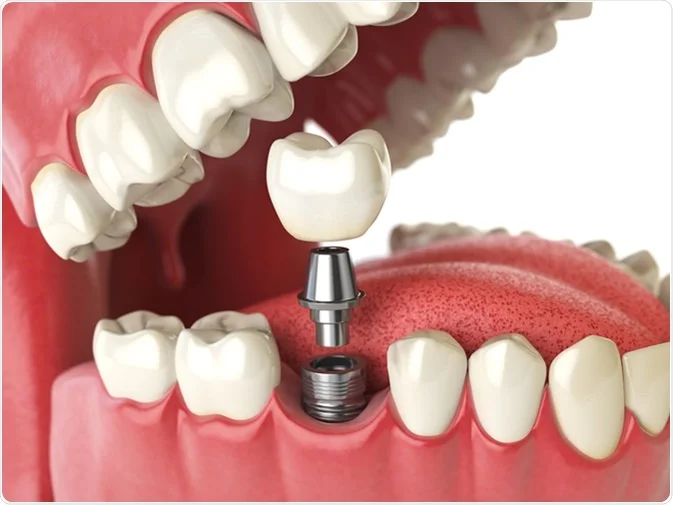Dental implants are a common option for individuals seeking to address one or more missing teeth. An implant consists of three main components: a small, screw-like post, an abutment that connects to this post, and a custom-made crown that attaches to the abutment. This structure is designed to function as a replacement for a natural tooth root and crown, offering a durable solution for tooth loss. Here’s information on the benefits of dental implants:
Restoring Function
When a tooth is lost, it may affect daily activities like chewing and speaking. Dental implants are designed to restore function that may have been diminished by tooth loss. Because the implant post integrates with the jawbone, it creates a stable foundation for the replacement crown. This stability allows individuals to chew a wide variety of foods, similar to how they would with natural teeth. The secure fit also helps to improve speech clarity, as there is no concern of the replacement tooth slipping or moving.
Tooth loss may occur for a variety of reasons, ranging from preventable issues to unavoidable circumstances. Some common causes include:
- Gum Disease (Periodontitis): This is one of the leading causes of tooth loss in adults and occurs when infections damage the soft tissue and bone supporting the teeth.
- Tooth Decay: Severe cavities weaken the tooth structure, leading to tooth loss if left untreated.
- Trauma or Injury: Accidents, sports injuries, or other physical impacts can result in the loss of teeth.
- Poor Oral Hygiene: Neglecting proper brushing and flossing may lead to the buildup of plaque and tartar, contributing to decay and gum disease.
- Chronic Medical Conditions: Diseases like diabetes and osteoporosis can affect oral health and increase the risk of tooth loss over time.
- Lifestyle Factors: Smoking, excessive alcohol consumption, and poor nutrition can all negatively impact oral health and contribute to tooth loss.
By recognizing these causes, individuals can take proactive steps to protect their teeth and seek appropriate dental care when issues arise.
Reducing Alignment Issues
A gap left by a missing tooth can lead to surrounding teeth shifting out of place, causing misalignment problems. Alignment issues affect the bite and may lead to discomfort or further dental complications. By filling the space, a dental implant acts as a placeholder, preventing the adjacent teeth from drifting.
Maintaining proper tooth alignment helps preserve teeth by preventing stress and wear on other teeth that can result from misalignment. Some malocclusion types that can lead to uneven wear on teeth are:
- Underbite
- Overbite
- Crossbite
- Open Bite
- Overjet
Preserving the Jawbone
The roots of your natural teeth stimulate the jawbone, keeping it strong and dense. When a tooth is lost, this stimulation ceases, and the bone in that area can begin to deteriorate over time. This loss of bone mass can affect facial structure and the stability of neighboring teeth. Dental implants are unique because the titanium post fuses directly with the jawbone, providing the stimulation needed to maintain its density and volume.
Learn More About Dental Implants
Dental implants preserve the jawbone, reduce alignment issues, and restore functionality to teeth. If you need solutions for missing teeth, consult with a dental professional to learn if implants are right for you. An in-depth evaluation will provide you with individualized recommendations and answer any questions you may have about dental restorations. Schedule a dental visit today.


Leave a Reply